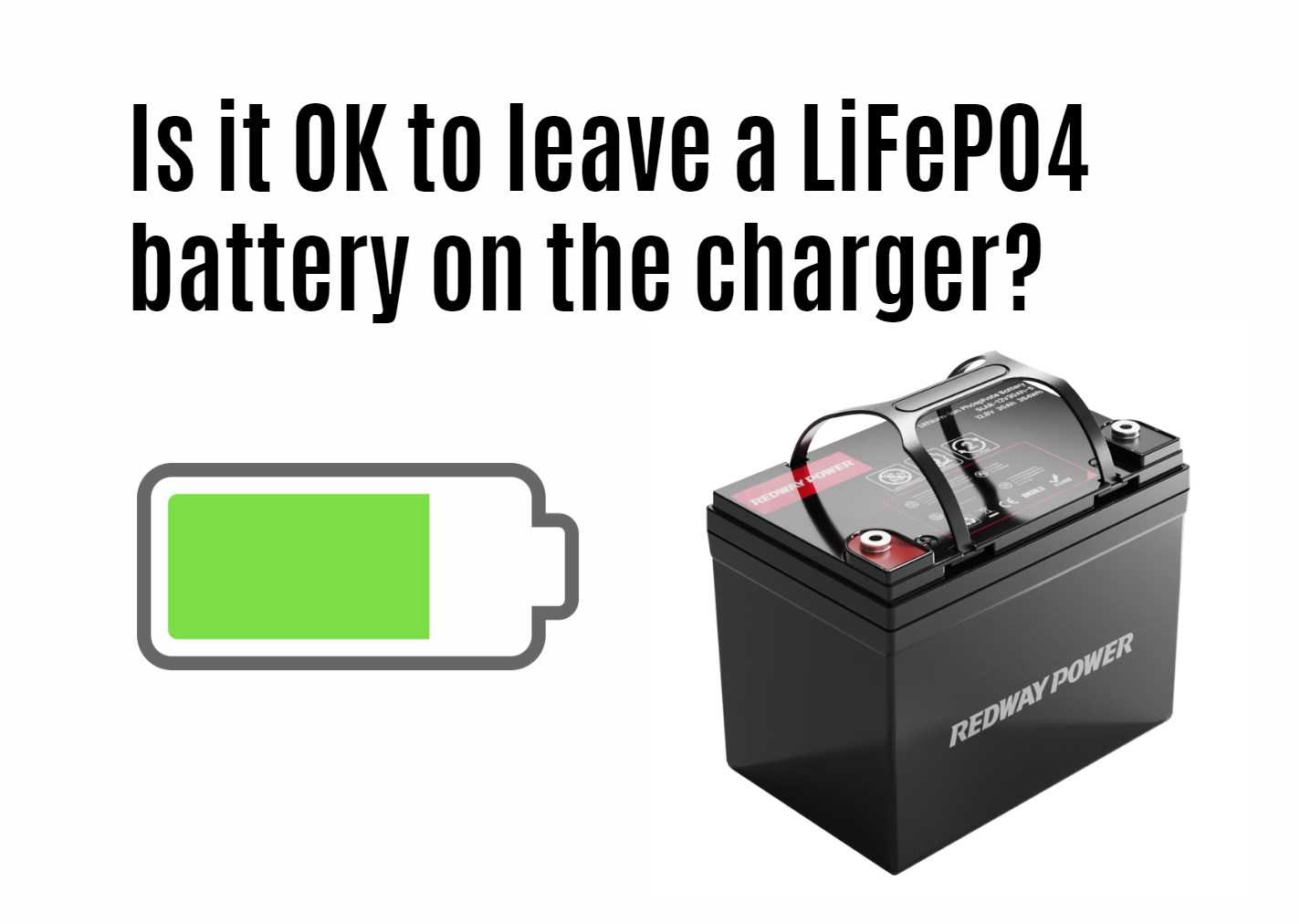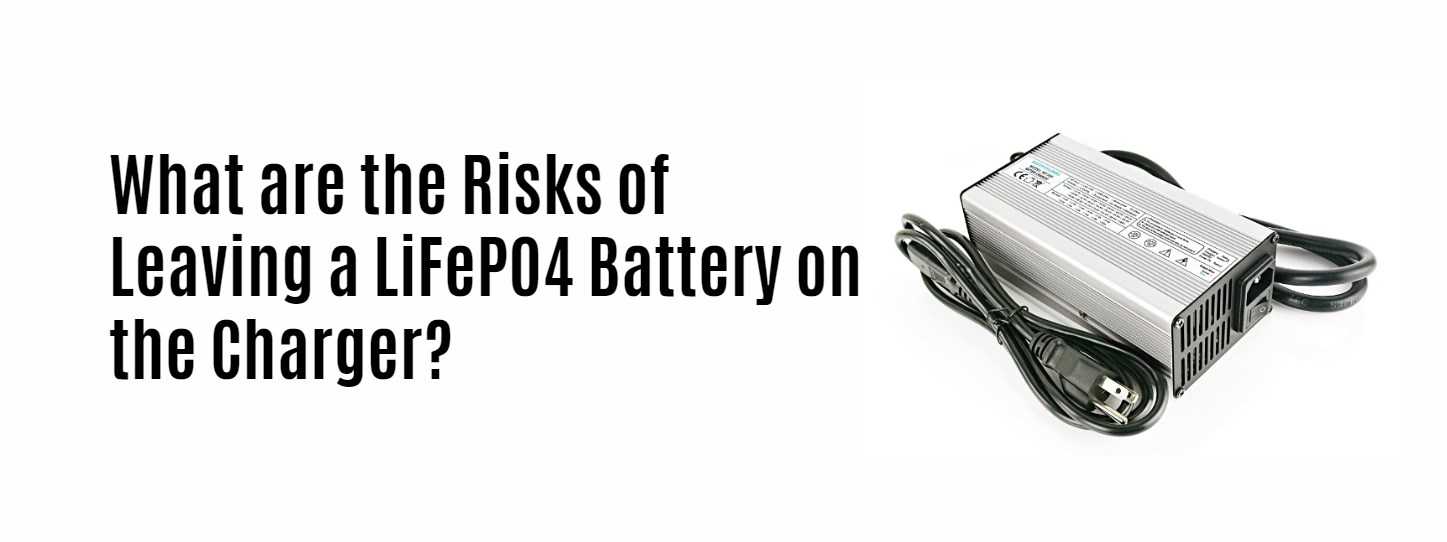As the popularity of LiFePO4 batteries (Lithium Iron Phosphate) continues to rise, particularly in applications like electric vehicles, solar energy storage, and portable power systems, many users wonder about the best practices for charging these batteries. One common question is: Is it OK to leave a LiFePO4 battery on the charger? In this article, we will delve into the nuances of charging LiFePO4 batteries, exploring their characteristics, benefits, and best practices to ensure optimal performance and longevity.
Understanding LiFePO4 Battery Technology
LiFePO4 batteries are known for their safety, stability, and long cycle life. Unlike traditional lithium-ion batteries, LiFePO4 batteries have a more stable chemical composition, which translates to enhanced safety features and longevity.
Key Characteristics of LiFePO4 Batteries
- Thermal Stability: LiFePO4 batteries can withstand higher temperatures without degrading.
- Long Lifespan: They typically offer over 2000 charge cycles with minimal capacity loss.
- High Discharge Rates: These batteries can deliver high current outputs, making them suitable for various applications.
Charging Characteristics of LiFePO4 Batteries
When it comes to charging LiFePO4 batteries, understanding their unique characteristics is crucial.
1. Smart Charging Systems
Most modern LiFePO4 batteries come equipped with smart charging systems that automatically regulate the charging process. These systems can:
- Prevent Overcharging: Smart chargers stop charging once the battery reaches full capacity.
- Adjust Charging Current: They can modify the current based on battery temperature and state of charge (SoC).
2. Charge Maintenance
LiFePO4 batteries can be left on the charger without significant risk of damage due to their built-in protection mechanisms. However, it is essential to consider a few factors:
- Use Quality Chargers: Always use chargers specifically designed for LiFePO4 batteries to ensure compatibility and safety.
- Temperature Monitoring: Ensure that the battery does not overheat while on charge. Most smart chargers will manage this automatically.
Benefits of Leaving a LiFePO4 Battery on the Charger
Leaving a LiFePO4 battery on the charger can have several advantages:
1. Convenience
For users relying on their battery for critical applications—such as solar energy systems or electric vehicles—keeping the battery charged ensures it is ready for use at any time.
2. Battery Maintenance
Keeping a LiFePO4 battery connected to a charger with maintenance capabilities can help maintain optimal charge levels, especially if the battery is not used frequently. This practice helps prevent deep discharges that could shorten the battery’s lifespan.
3. Enhanced Lifespan
When properly managed through smart chargers, leaving a LiFePO4 battery on charge can contribute to its longevity by ensuring it stays within optimal voltage ranges.
Best Practices for Charging LiFePO4 Batteries
To maximize the benefits of leaving your LiFePO4 battery on the charger, we recommend following these best practices:
1. Use a Dedicated Charger
Always opt for a charger specifically designed for LiFePO4 technology. These chargers are programmed to handle the unique charging profiles required by these batteries.
2. Monitor Temperature
While most smart chargers will manage temperature effectively, it’s wise to periodically check that your battery remains within safe operating temperatures (typically between 20°C and 25°C).
3. Avoid Extreme Conditions
If possible, avoid charging your battery in extreme temperatures—either too hot or too cold—as this can affect performance and longevity.
4. Regularly Check Battery Health
Periodically inspect your battery’s health and performance metrics using a compatible monitoring system or app. This practice helps identify any potential issues early.
Data Chart: Comparison of Charging Practices for Different Battery Types
| Feature | LiFePO4 Batteries | Lead-Acid Batteries | Other Lithium-Ion Batteries |
|---|---|---|---|
| Overcharge Protection | Yes | Limited | Yes |
| Ideal Charge Voltage | 14.6V – 14.8V | 14.4V – 14.6V | 4.2V per cell |
| Cycle Life | 2000+ | 500-1000 | 1000-1500 |
| Temperature Sensitivity | Moderate | High | Moderate |
Latest News in Battery Technology
As of October 2024, advancements in battery technology continue to evolve rapidly. Recent developments include:
Improved Smart Charging Solutions
New smart charging technologies are being introduced that enhance efficiency and safety for all types of lithium-based batteries, including LiFePO4. These innovations promise better thermal management and quicker charging times.
Sustainable Battery Production
There is an increasing focus on sustainable production methods for lithium batteries, including recycling initiatives aimed at reducing environmental impact.
FAQs About Leaving LiFePO4 Batteries on Charge
1. Can I leave my LiFePO4 battery on charge indefinitely?
Yes, as long as you are using a quality smart charger designed for LiFePO4 technology that prevents overcharging.
2. What happens if I use a regular lithium-ion charger?
Using a regular lithium-ion charger may not provide the correct voltage or current profile needed for safe charging of LiFePO4 batteries, potentially leading to damage.
3. Is it safe to charge my battery overnight?
Yes, it is generally safe to charge your LiFePO4 battery overnight if you are using an appropriate smart charger.
4. How can I tell if my battery is fully charged?
Most smart chargers will indicate when charging is complete through an LED light or display.
Conclusion: Best Practices for Charging Your LiFePO4 Battery
In summary, leaving a LiFePO4 battery on the charger is generally safe and can be beneficial when done correctly with quality equipment. By adhering to best practices such as using dedicated chargers and monitoring temperature levels, we can ensure optimal performance and longevity of our batteries.At Redway Battery, we specialize in manufacturing high-quality Lithium LiFePO4 batteries tailored to meet diverse needs across various applications. For quick quotes on custom solutions or wholesale inquiries, feel free to contact us today!





